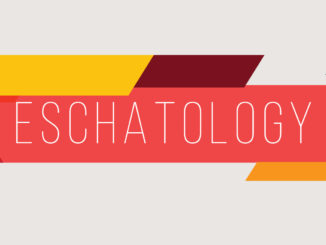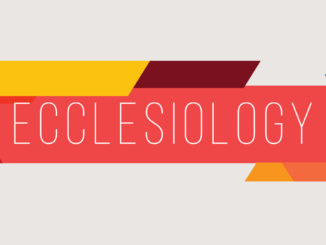
In the realm of religious beliefs, the first question that must be answered is this: “On what authority is doctrine to be based?” Most professing Christian denominations give at least a passing nod to the Bible as a source of beliefs. Unfortunately, this is often diluted and negated by the acceptance of additional “authorities” including tradition, a particular creed, the writings of a denominational founder, further “new revelations,” or the actual abandonment of Biblical teaching in favor of contemporary sociology, theories of some scientists, or mere human reason. But for us, the Bible is “the only complete and final revelation of the will of God to man” and “the supreme standard by which all human conduct, creeds, and opinions should be tried.” Our insistence on complete and final Biblical authority is solidly based in the Bible itself.
The Bible is a complete and final revelation, able to make a believer complete and mature in everything. Click To TweetScriptural Support
The OT declares that it is God speaking over 3,500 times. An example is found in 2 Samuel 23:2. Similarly, the Apostles expressly claim Divine authority for their teachings (I Corinthians 14:37). The process of the inspiration of Scripture is described in I Peter 1:20-21, which indicates that the writers were not self-motivated, but were “carried along” by the Holy Spirit. Jeremiah 36 gives a graphic account of the actual writing down of Divinely inspired words. The resultant Scripture is, in its entirety and in every detail, “inspired of God” or, literally, “God-breathed” (2 Timothy 3:16). God cannot lie or deceive, and all His written words are truth: factually correct in matters of history, science, and especially theology. The Bible is a complete and final revelation, able to make a believer complete and mature in everything (2 Timothy 3:17).
Historical Perspective
It is not by accident that “Bible” is an essential component in the names of our association founded in 1950, the college founded that same year, and this publication: the Baptist Bible Fellowship, Baptist Bible College, and Baptist Bible Tribune. The Bible has always been, and must always remain, the center and focus of our “reason to be.”
We recognize that the final, absolute authority of Scripture is vested in the Biblical books as originally written in Hebrew, Aramaic, and Greek. God in His singular providential care has preserved these written Scriptures from destruction by tyrants, both religious and political, as well as from the perils of copying so that the Hebrew and Greek texts available to us today have remarkably few scribal variations and in all essential matters conform to the text as originally written.
Throughout history, many more people have come to a knowledge of the true God through the means of Bible translations than from reading the Scriptures directly in the original languages. The making and use of Bible translations have been blessed by God ever since the Law of Moses was first translated from Hebrew into Greek around 250 B.C. Jesus, and the Apostles often quoted the OT in the Greek translation current in that day, and on the Day of Pentecost (Acts 2), God implicitly approved the making of Bible translations by miraculously enabling the assembled Jews to hear, each in his own native language, “the wonderful works of God.” To date, all or part of the Bible has been translated into over 2,200 distinct languages, with more in preparation.
While translations are not made under Divine inspiration and are not infallible like the originals, nevertheless, to the degree that they accurately convey the meaning and content of the originals, they share their authority, may properly be called the Word of God, and are for nearly all practical uses entirely adequate.
Practical Application
If we truly believe in the complete and final authority of Scripture, it is imperative that we strive to become thoroughly acquainted with Biblical teaching through careful reading and study. It is likewise necessary that we be “doers of the Word and not merely hearers.” The Bible is a very practical book and is by Divine design, a guidebook for our daily conduct.
Current “scientific consensus” must not be our guide to how the Bible is to be interpreted—or misinterpreted—but the plain teaching of the Bible must be our guide in evaluating contemporary “scientific” claims and theories. Likewise, in sociology: our interpretation of the Bible must not be conformed to the ever-changing opinions of present secular opinion, but secular opinion must be evaluated on the basis of Biblical teaching.
Click here to read the Introduction to the series, Why Study Theology
Click here to read part two of Rooted: An Introduction to Systematic Theology, Theology Proper (available October 29, 2019)
Click here to read part three of Rooted: An Introduction to Systematic Theology, Christology (available October 30, 2019)
Click here to read part four of Rooted: An Introduction to Systematic Theology, Pneumatology (available October 31, 2019)
Click here to read part five of Rooted: An Introduction to Systematic Theology, Angelology (available November 1, 2019)
Click here to read part six of Rooted: An Introduction to Systematic Theology, Ecclesiology (available November 4, 2019)
Click here to read part seven of Rooted: An Introduction to Systematic Theology, Anthropology (available November 5, 2019)
Click here to read part eight of Rooted: An Introduction to Systematic Theology, Hamartiology (available November 6, 2019)
Click here to read part nine of Rooted: An Introduction to Systematic Theology, Soteriology (available November 7, 2019)
Click here to read part ten of Rooted: An Introduction to Systematic Theology, Eschatology (available November 8, 2019)
Click here to read part eleven of Rooted: An Introduction to Systematic Theology, Dispensationalism (available November 8, 2019)




6 Trackbacks / Pingbacks
Comments are closed.